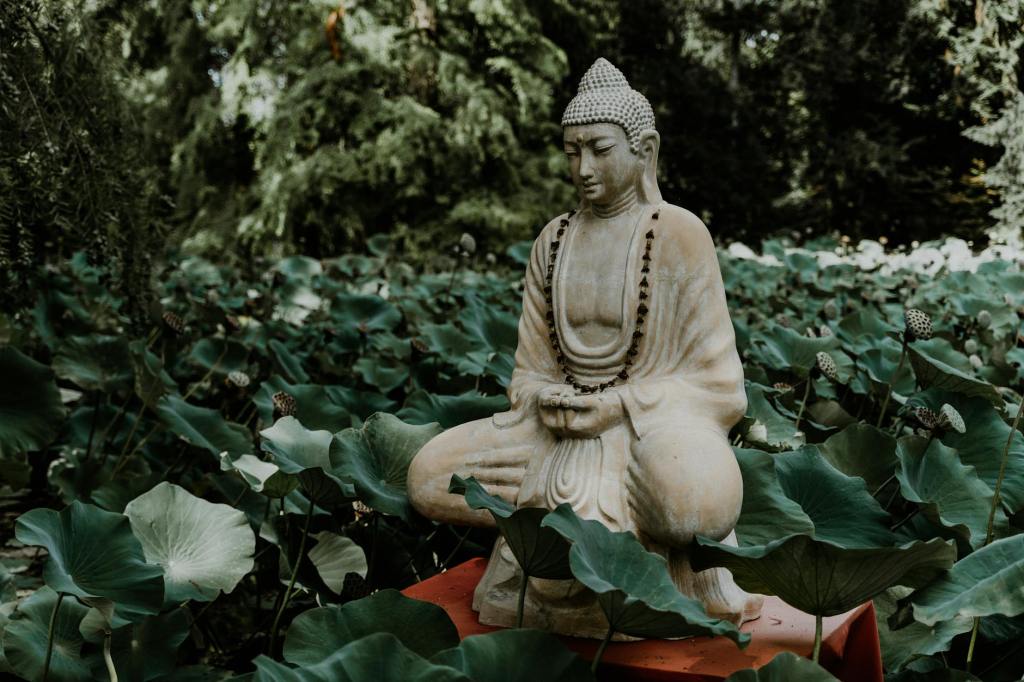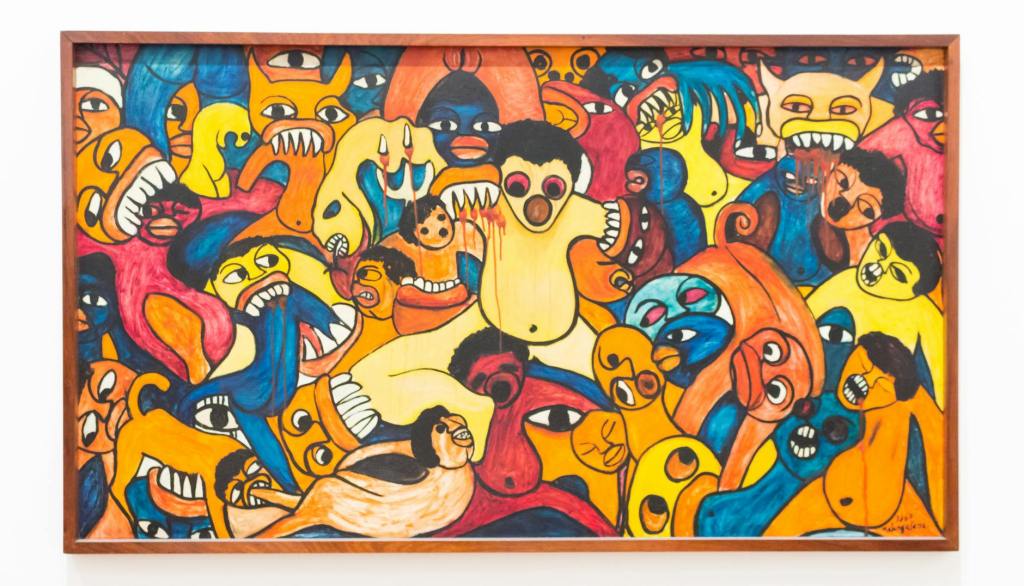I’ve been hunting unicorns lately. This particular one I’ve been on the hunt for since last Autumn, when I found myself in search of something I feared didn’t exist: non-stigmatizing support for people with substance use coping issues that wasn’t based on the 12 Steps. Emphasis on “no 12 Steps” and “non-stigmatizing”. Making that combination a requirement for any support program I might seek to utilize made my search extraordinarily difficult.
I scratched and dug on the internet until my cybernails bled, coming up with the usual glut of 12 Step-based books and programs, all laden with the same stigmatizing and judgmental jargon left from the earlier days of the Drug War. Not only were 12 Step groups almost universally Christian in their manifestation, and therefore a turnoff for me, they were still using words that major treatment centers are re-evaluating for their utility and compassion. I also had personal reasons for feeling traumatized by the 12 Step system.
I knew there were non-theistic, non-12 Step substance use support groups out there, I just wasn’t finding them immediately. Then I remembered seeing a Buddhist-oriented support group at my Unitarian Universalist church and looked up the group’s associated website. At first I was overjoyed, having thought that I’d found a working support system with meetings three days a week. The overview looked like a good fit for what I was already doing philosophically and lifestyle-wise.
Imagine my dismay to discover that the leader of the organization had been steeped in controversy for the last several years as the result of impropriety with students. Not only were the initial incidents somewhat troubling, how he chose to respond to the incidents was even more troubling. The issue remains unresolved to this day and resulted in a schism that birthed a separate organization (though I did not know that at the time).
I decided not to go to the meetings, not knowing if the other attendees would be trustworthy given the organizational controversy, and not having that resource at that time may have turned out to be a critical event that led to trouble further down the road. I was seeking to disrupt what was turning into a bad habit of spending a lot of money getting very high, sometimes for days, every time we got paid, and sometimes in almost the same breath complaining about not having enough money to pay for everything. I was simultaneously in full awareness of what I was doing, and also in complete denial of it.
I had to restart my hunt for that unicorn this week on the heels of an expensive bender I had no intention of repeating, ever. And yet there was a whispering little voice in my head that still thought that was a fun idea, and I needed to find a way to kill it, dead. Or at least figure out what it really needed and give it that instead. And only finding that damned unicorn was going to help in that regard.
I went to the place I always go when I have a health-related issue: Reddit. It requires a bit of skill to filter out the chaos and the noise, but I’ve gotten some of the most solid and reliable health information from Reddit over the years, and that day was no different. I searched for “recovery”, wanting to avoid the stigmatizing term “addiction”, and there was r/recoverydharma, a subreddit for an organization born out of the controversy of that first Buddhist-oriented support group I’d found.
No 12 Steps? Check.
Little/no stigmatizing language? Check.
Non-theistic? Check.
Buddhist-oriented? Check.
Not led by a creepy narcissist? Check.
Bonus points: trauma-informed? Check!
Extra bonus points: sympathetic to harm reduction? Check!
I’d found my unicorn.
Since finding the organization, I’ve been to a few meetings both online and in-person, and I’m finding it dovetails well with work I’ve already been doing for some time. As a result, it feels comfortable, unlike working with most 12 Step groups, which make me feel like I’m in a Christian church. There are dozens of online meetings each day, which means I can easily fit one into my schedule.
As a Buddhist-oriented system, there is an emphasis on compassion and suspending judgment that I feel is very important to psychological recovery of any kind. Typically people with issues with habits and patterns are like that because they’ve already suffered some sort of unaddressed trauma that they’re trying to cope with. Part of successful recovery involves giving your psyche and soul the things they never got and went looking for in the wrong places.
I noticed that there were people who chose to follow both the Recovery Dharma path as well as a 12 Step path. It intrigued me, as they seemed like incompatible systems. However, I had recently learned that the 12 Steps were not intended as a purely Christian spiritual system, they were supposed to be much more Gnostic and personal in nature. I decided to rewrite them, removing the spiritual terminology and replacing it with psychological concepts, plus adding elements of cultivation and compassion.
As a result, I transformed the 12 Steps from a system with the message “you are weak and broken and must give your life over to an invisible spiritual force in order to get better” to one with the message “you have been damaged but have great strength within you to heal yourself with help”. Now instead of a stern system focused only on a person’s flaws and weaknesses, it’s a compassionate, empowered path of potential healing.
- We admitted we were powerless over our habits and patterns — that our lives had become unmanageable.
- Came to believe that an Inner Power more knowledgeable than our conscious selves could restore us to sanity.
- Made a decision to turn our will and our lives over to the care of our True Self.
- Made a compassionate, searching, and fearless moral inventory of ourselves.
- Admitted to our True Self, to ourselves, and to another human being the exact nature of our wrongs and strengths.
- Were entirely ready to have our True Self remove any defects of character.
- Humbly asked our True Self to remove our shortcomings while cultivating our strengths.
- Made a list of all persons we had harmed, including ourselves, and became willing to make amends to them all.
- Made direct amends to such people wherever possible, except when to do so would injure them or others.
- Continued to take personal inventory, and when we were wrong, promptly admitted it with compassion.
- Sought through contemplation and meditation to improve our conscious contact with our True Self, striving only for knowledge of Their will for us and the power to carry that out.
- Having had a personal awakening as the result of these steps, we tried to carry this message to those who suffer and to practice these principles in all our affairs.
It is remarkable that I am able to even contemplate using an altered version of the 12 Steps. I found them deeply triggering due to years of being sporadically dragged to AA meetings by my mother. I spent many hours in empty wood-paneled rooms with nothing to do, listening to people’s muffled voices on the other side of the closed door, the smell of bad coffee and cheap cigarettes hanging in the air. I do not like the Serenity Prayer despite its truth and beauty because it reminds me of AA meetings.
It was for these reasons as well as my lack of adherence to Christian philosophy that I found it necessary to transform them into something more closely resembling my personal beliefs. Now they are designed to empower me, not take it away and give it to some distant deity. I would have abandoned them entirely, but something in me recognized there was hidden wisdom within them that merely needed revealing. Now they are a useful augment to the Recovery Dharma system that fills in certain gaps.
Only the deep work I have done on suspending personal judgment and criticism has enabled me to get through this early process without suffering from an immense amount of shame. As it is, I feel guilt and embarrassment, but I do not feel like a bad person. Nevertheless, I recognize my responsibility in correcting these thought and behavior patterns, even if they are not of my own doing. It’s the shitty part of recovery: having to clean up a mess that you made but can’t really be blamed for. A mess that, in all likelihood, never would have happened if not for the people and circumstances of your life.
I can’t do anything about that now, though. All I can do is recognize what’s wrong and fix the issues as best I can. At least I have a community, a sangha, to do that with now. It’s said that Buddhism is comprised of the Three Jewels: the Buddha, the Dharma, and the Sangha. I’ve been walking the Path of the Dharma with the Buddha for some time now, but in the absence of a Sangha. It’s a lonely and potentially dangerous way to live. Buddhism states that we are literally empty of meaning in the absence of connections to other people, so to live in the absence of a sangha is to navigate life with no map or compass.
If I had had the sangha that I was seeking last Autumn, perhaps I would not have strayed from my Path and done harm to myself, my husband, and my finances. While I recognize that I am responsible for my own actions, I also recognize that damaged people cannot always make good decisions, and so from that perspective, I can’t be blamed for my actions. There’s a difference between responsibility and blame.
If there is blame to be laid in this situation, I feel it is with the leader of the Buddhist recovery organization that Recovery Dharma decided to split from. I’m angry that this person chose to ignore the controversies that surround him and focused instead on his own ego. All he did was cause suffering and harm to others by creating a space that potentially makes others feel unsafe, as it did with me. This is antithetical to the goal of Buddhism, which is to ease suffering in the world. In choosing to remain the head of his organization rather than stepping down, he has made the purpose of that organization about his own needs rather than the needs of the people he claims to be trying to help.
In the absence of a source of support that may have been enough to prevent me from engaging in damaging behavior, I’ve spent money that was earmarked for other, certainly more important things and almost certainly done some damage to my relationship. Would it have been a certainty I could have avoided that if I’d had those meetings to go to? Of course not, but I’m willing to bet the balance of probability would have favored me. I know myself. I do well on my own, but sometimes all I need is a little help to get me by.
I wish I’d had that help last Autumn. I got off easy compared to other people. The bills still got paid and basic expenses were still covered, but some extra stuff that has been outstanding for a while is going to stay outstanding for a while longer because of that hole I fell into, and it upsets me because I feel very strongly that it could have been prevented. I tried to prevent it by going unicorn hunting last fall. I only wish that I’d found the real unicorn at that time, instead of the fake one.





Leave a comment